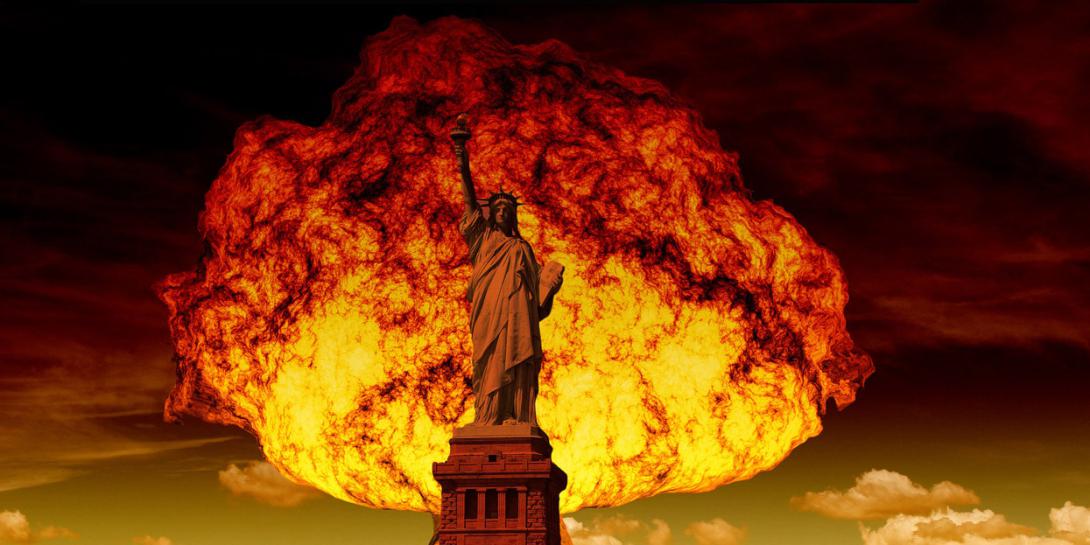Dan Coats: U.S. Faces Toxic Mix of Threats
The United States faces a “toxic mix of threats,” Dan Coats, the director of National Intelligence, testified today before the Senate Select Committee on Intelligence while unveiling the annual Worldwide Threat Assessment of the U.S. Intelligence Community.
China, Russia, North Korea and Iran, the Big 4 as Coats described them, top the list of threat actors, including in the cyber realm. “All four of these states I have just mentioned are advancing their cyber capabilities, which are relatively low cost and growing in potency and severity. This includes threatening both minds and machines in an expanding number of ways, such as stealing information, attempting to influence populations or developing ways to disrupt critical infrastructures,” Coats said. “As the world becomes increasingly interconnected, we expect these actors to rely more and more on cyber capabilities for seeking to gain political, economic and military advantages over the United States and its allies and partners.”
The report itself states that the cyber attacks to be used by adversaries and strategic competitors will increasingly include cyber espionage, attack and influence operations. The report goes on to say that at present, China and Russia pose the greatest espionage and cyber attack threats, but the intelligence community anticipates that others will increasingly build and integrate cyber espionage, attack and influence capabilities into their efforts to influence U.S. policies and advance their own national security interests. “In the last decade, our adversaries and strategic competitors have developed and experimented with a growing capability to shape and alter the information and systems on which we rely,” the report states. “They are now becoming more adept at using social media to alter how we think, behave and decide.”
The toxic mix of threats also include weapons of mass destruction, such as nuclear, chemical and biological weapons. “We assess that North Korea, Russia, Syria and ISIS have all used chemical weapons over the past two years, which threatens international norms and may portend future use,” Coats said. “The threat of biological weapons has become more diverse as they can be employed in a variety of ways, and their development is made easier by dual-use technologies.”
Space-based systems also pose a threat. “We expect foreign governments to expand their use of space-based reconnaissance, communications and navigation systems. China and Russia will continue training and equipping their military space forces and fielding new anti-satellite weapons to hold U.S. and allied space services at risk,” Coats said. “Space has become the new global frontier of competition for numerous nations.”
The intelligence director added that the speed and adaptation of new technology will continue to drive the world in which we live in ways we have yet to fully understand. “Advances in areas such as artificial intelligence, communication technologies, biotechnology and materiel sciences are changing our way of life,” he noted. “Our adversaries are also investing heavily into these technologies and are likely to create new and unforeseen challenges to our health, economy and security.”
During the question-and-answer segment of the hearing, FBI Director Christopher Wray confirmed that Russia and others continue to use social media operations to attempt to influence U.S. elections. “We’ve seen indications that [Russia] continues to adapt their model and that other countries are taking a very interested eye in that approach,” Wray said.
Wray, along with Gen. Paul Nakasone, USA, National Security Agency director/chief, Central Security Service, emphasized the need to protect vital U.S. data from cutting-edge threats, such as artificial intelligence-driven attacks. “We see strong interest from a computer-intrusion dimension, both from nation states and criminal hackers, and increasingly the two in a blended threat way," Wray said. "We see nation-states enlisting the help of criminal hackers, which is a form of outsourcing that makes it more of a menace.”
Gen. Nakasone, who is also commander of U.S. Cyber Command, described data as the “coin of the realm” today. “We see our adversaries very interested in being able to procure data. This is something we’re very, very focused on as well at the National Security Agency,” the general said..





Comments